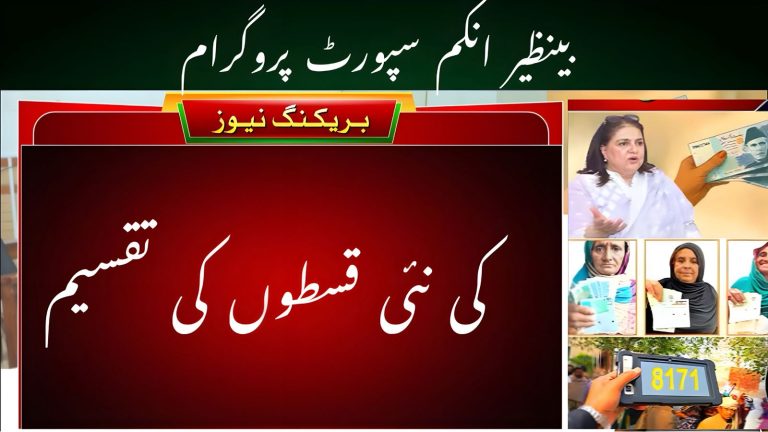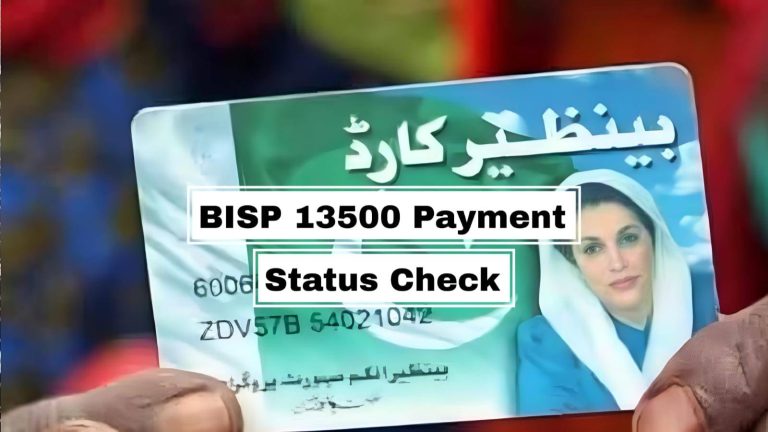BISP and Youth Empowerment | Skills Jobs & Innovation

A New Direction for Pakistan’s Youth
Pakistan’s youth make up over half the population. This is both a challenge and a great opportunity. While many young people have the passion to succeed, they often lack the tools and chances to do so.
To close this gap, the Benazir Income Support Programme (BISP) has expanded its focus. Originally designed to provide financial help to low-income families, BISP is now stepping up to train and empower young people—especially those from underprivileged backgrounds.
This shift is more than a policy change. It’s a national investment in the country’s future.
Skills That Matter: How BISP Is Helping Youth Learn and Grow
Success today depends on more than just a degree. It requires real-world skills—skills that match the needs of employers or can support self-employment. BISP’s youth programs offer just that.
What Are the Programs About?
Young people enrolled in these training initiatives learn practical, job-ready skills such as:
- Basic and advanced computer skills
- Health and nursing assistance
- Mobile repair, plumbing, or electrician work
- Sewing, embroidery, and crafts
- Language training to work overseas
Each course is tailored to market demand so that young people gain the right skills to find jobs quickly.
Who Can Join?
Most programs are open to young men and women aged 18 to 35 who are already part of BISP. The aim is to include those who come from families with limited income, especially those in rural areas.
Participants don’t just attend classes—they are supported throughout the process with stipends and learning materials. This makes the experience easier and more accessible, even for those with financial challenges.
Opening Doors: From Training to Employment
Learning is just one step. What matters next is action—and BISP is working to connect youth to jobs and income opportunities.
What Happens After Training?
After completing their courses, participants are supported in various ways:
- Job matching: Young workers are connected to local companies looking for skilled staff.
- Internships: Some programs offer on-the-job training so students can gain real experience.
- Overseas employment: In fields like nursing or language services, trainees may apply for international jobs.
With better skills, confidence, and support, these young people stand a better chance of earning and growing.
Creating Entrepreneurs: Youth Who Lead Their Own Path
Not every young person wants to work for someone else. Many dream of running their own business—and BISP is making that possible too.
How BISP Encourages Startups
Young people who complete vocational training are encouraged to use their skills to start something of their own. This might include:
- Tailoring businesses from home
- Mobile phone repair services
- Food stalls or delivery services
- Digital freelancing or content creation
Training includes guidance on managing money, dealing with customers, and building basic business plans. For some, it’s the first step toward financial independence.
Going Digital: Preparing Youth for a Tech-Driven World
In today’s fast-changing world, technology is everywhere. That’s why BISP has added digital training to its list of services.
Teaching Digital Skills
Courses now include:
- Office software and typing skills
- Internet safety and email use
- Web design and development basics
- Freelancing through online platforms
These skills allow youth to work remotely, sell products online, or offer services to global clients. It opens up new ways to earn that don’t depend on traditional jobs.
Thinking Forward
By including innovation and tech in its programs, BISP is helping young people not just fit into the job market—but shape it. When youth learn to solve problems with technology, they become part of the solution.
Full Support: Helping Youth Every Step of the Way
It’s not enough to just offer training. Real change comes when young people have support at every stage of their journey. That’s what makes BISP’s model special.
More Than Just Skills
BISP’s youth development approach includes:
- Financial aid: To ease the pressure of daily expenses
- Training access: Through local centers in rural and urban areas
- Education support: For younger siblings still in school
- Health support: For young mothers and children
- Guidance: Career counseling and mentorship
This full-circle model helps youth focus, stay on track, and avoid dropping out.
Community Matters
Training centers often become community hubs where youth can share ideas, learn from one another, and feel motivated. This sense of belonging is important for long-term success.
FAQs
Who can enroll in the training?
Young people between 18 and 35, registered under BISP, can apply. Special efforts are made to include women and youth from rural backgrounds.
Is there any cost to join?
No. Training is free, and many courses come with a monthly stipend to cover food, travel, or basic needs.
Will I get a job after training?
There is no guarantee, but BISP actively helps match youth with employers and promotes self-employment for those who want to start their own work.
How do I sign up?
Applications are usually made at local BISP offices or online portals. Documents such as ID and education certificates are needed.
The Bigger Picture: From Dependence to Self-Reliance
What makes BISP’s youth development program powerful is its shift in focus. It no longer only gives cash to those in need—it also helps them stand on their own.
When a young person learns a skill, finds a job, or starts a business, the effects go far beyond that one person. Families benefit. Communities grow. The country moves forward.
This is how nations are built—one empowered citizen at a time.
Final Thoughts: The Future Is Bright
Pakistan’s young generation has talent, energy, and drive. What many have lacked is opportunity. BISP is working to change that through real, practical programs that prepare youth for success in today’s world.
Whether it’s learning to fix a machine, care for patients, sell a product online, or build something with their hands—youth are being given the power to shape their own future.
Read this : BISP and Women Empowerment in Pakistan | Economic Inclusion
Read this: BISP and Rural Transformation | Uplifting Remote Communities





